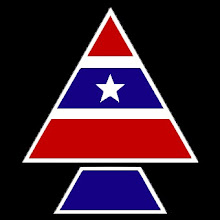El Salvador’s Mauricio Funes, the latest leftist candidate to win election in Latin America, is calling for national reconciliation following a bruising campaign against ARENA a pro-U.S. conservative party that has governed the country for two decades.
Funes, who beat Rodrigo Avila of the business-backed ARENA party by a two-and-a-half point margin in Sunday’s election, was the standard-bearer for the Farabundo Marti National Liberation Front (FMLN).
A telegenic former television anchor, he was recruited to front the presidential campaign of the former Marxist guerilla group, which became a legal political party under a 1992 peace agreement ending a bloody 12-year civil war.
During the campaign, opponents charged that Funes, if successful, would follow orders from Cuba and damage El Salvador’s ties with the United States, where some two million Salvadoran expatriates live and work, sending home crucial foreign currency.
The jury is still out on whether Funes will model himself on Venezuela’s U.S.-baiting Hugo Chavez – as his opponents charged during the campaign – or on Brazil’s
Luiz Inacio Lula da Silva, generally viewed a more pragmatic left-winger.
For his part, Funes has emphasized his close ties to and political affinity with Da Silva. Campaigning, he kept Chavez at arm’s length, while comparing his message of “change” to that of President Obama. Shortly after declaring victory he met with an official at the U.S. Embassy.
State Department spokesman Robert Wood on Monday congratulated the people of El Salvador for a “very free, fair, and democratic election” and said the U.S. looked forward to working with the new government.
But while Funes, who did not himself fight in the war, presents a moderate face, other leaders in the party, including his vice-presidential running mate and former guerilla Salvador Sanchez Ceren, are viewed with deep suspicion by critics who believe the FMLN remains communist at heart.
Funes’ victory is the latest in a string of electoral successes by left-wingers in Latin America over the past decade, on the back of campaigns hostile to Western free-market policies.
They range from Chavez and his allies in the Bolivarian Alternative for the Americas (ALBA) group including Bolivia, Honduras, Nicaragua and Dominica; to more moderate leftist governments in Brazil, Chile and Argentina, with others like Ecuador and Paraguay somewhere in between.
President Obama is due to meet with these leaders and others when he visits Trinidad and Tobago in a month’s time for a Summit of the Americas, a gathering that brings together heads of government from 34 countries in the hemisphere. ALBA member Cuba alone is not on the invitation list.
The summit, the fifth of its kind, is expected to be dominated by the global financial crisis, along with Obama’s proposed “energy partnership for the Americas,” aimed at helping nations in the region become more energy independent and promoting growth.
‘Red and pink tide’
As left-wing candidates have won over the years, Chavez has sought to draw them into alliances, with varying degrees of success.
The Venezuelan leader, who has been supporting FMLN mayors in El Salvador for several years by providing heavily-discounted oil supplies, was quick to congratulate Funes.
“This victory strengthens the historic wave that, in this first decade of the 21st century, has arisen in all of Latin America and the Caribbean, and opens its doors to other sibling peoples in the challenges they will face,” he said in a statement carried by the official ABN news agency.
Chavez told Funes to remember “that the unity of our peoples is the only path to overcome the crisis unleashed from the heart of capitalism in the North.”
More than 70,000 people died in El Salvador’s brutal civil war, a Cold War-era conflict that saw the Soviet Union and Cuba backing the FMLN while the Reagan administration supported the military government. The country remains politically polarized, and violent crime is rife.
Latin American left-wing causes have long generated passionate support among leftists elsewhere, and communist and socialist media and organizations hailed the FMLN victory.
Interviewed on the left-wing radio show Democracy Now!, New York writer Roberto Lovato, “a child of Salvadoran immigrants,” called the FMLN victory “the defeat of Ronald Reagan, nothing less.”
“This is a continuation of the red and pink tide that’s taken hold in the hemisphere,” he said. “The big difference is that it brings us even closer to the north. It brings us even closer to the border wall.”
A joint report by the Committee in Solidarity with the People of El Salvador, the North American Congress on Latin America and Upside Down World, said Funes’ victory “constitutes a dramatic shift for El Salvador – and the region.”
The report noted comments by the candidate eschewing socialism, but said he may simply have been “pandering to moderate swing-votes, or deflecting the possibility of hostility from Washington.”
Hugo Chavez won't be able to help El Salvador too much economically he's already spreading Venezuela's resources too thin by all of the economic help being sent to Cuba, Bolivia, and Nicaragua. With the drop in oil prices and the institution of disastrous socialist policies Chavez' money tank is fast approaching empty. The people of El Salvador will learn as others have that socialism the cancer of liberty just doesn't work....only through aggressive National Capitalism that reaches down to the common man will the people prosper.
Wednesday, March 18, 2009
Subscribe to:
Comments (Atom)






